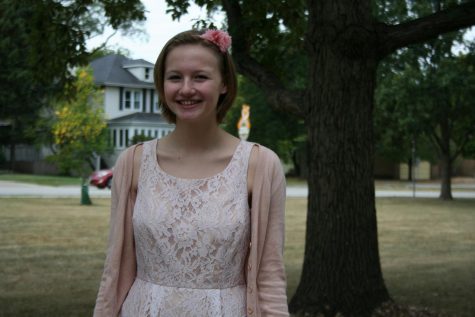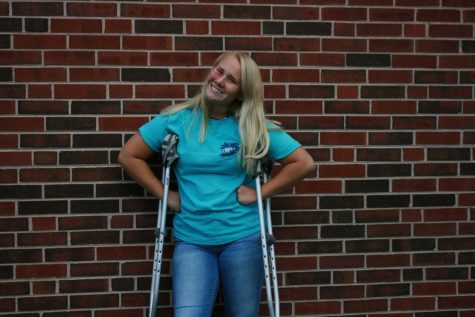AST helps to spur school-wide DACA discussion

Photo taken from Wikimedia Commons.
February 16, 2018
This article originally appeared in the February 14, 2018 version of The Clarion.
On January 26, 2018, the Association of Students for Tolerance (AST) held the second of three open discussions regarding The Deferred Action for Childhood Arrivals (DACA), the Development, Relief, and Education for Alien Minors Act (Dreamers Act), and immigration policies. The first meeting was held on Friday, October 13, 2017 and the date of the next meeting, run by AST and The Organization of Latin American Students (OLAS), is yet to be determined.
Many teachers, such as social studies teacher John Fields, and students are familiar with immigration policy.
“DACA has to do with young children who were brought to America by undocumented parents. They are often referred to as Dreamers. Many of them now are adults. They’re in the military. They’re in college,” said Fields.
DACA and the Dreamers Act were established during the Obama administration with about 800,000 people enrolled in the program. In short, both are immigration policies for people who were brought into the United States illegally as minors to give them rights such as a two-year period of deferred action from deportation, eligibility for a work permit, and even potentially permanent legal citizenship.
Senior Olutosin Olowu, president of AST, and the rest of the club have established common goals for these discussions, such as educating people through facts about the path to citizenship and similar immigration issues.
“I hope to accomplish a sense of awareness of immigration. I feel like in terms of our presidency and Donald Trump and politics in general today, it’s made a lot of people very divided and separate. Immigration, even though a lot of people don’t believe it, is something that unites us all,” said Olowu.
AST holds many dialogues during the school year about a variety of social issues. This series of meetings provides a safe space for discourse regarding how immigration affects the RB community.
“We usually take a social issue that people are very polarized on. We try to fnd a middle ground and discuss it. Sometimes a lot of people are scared to discuss certain things so we try to bring a platform for people to talk about it,” said Olowu.
Only advanced Spanish and social studies courses can incorporate immigration issues in curriculum. However, many teachers, such as Spanish teacher and sponsor of OLAS Juan Tinoco, feel that AST is a perfect way for people to learn.
“You have the opportunity to really dive into it and see firsthand because there are some students that are pretty vocal about it. DACA is something that affects everybody,” said Tinoco.“It should be a discussion that everybody should be having. That’s how people get educated about the topic. People can clear out any misunderstandings that they may have about DACA.”
Tinoco has been personally affected by immigration policy in connection with his family, friends, and students.
“For example, one of [my friends] was able to go into teaching, got a master’s [degree], but was not able to become certified by the State of Illinois. She was not able to work as a school teacher precisely because of [her] status. With DACA, that permitted her to get a working permit and be able to become a high school teacher,” said Tinoco.“With DACA being in limbo, what happens? There you have a person who is not necessarily a student anymore, and in the case of my friend, is an adult and has a family to sustain. Right now, what is going to happen?”
Senior AST member Bailey Hastings supports DACA and appreciates flyers around the school supporting Dreamers in RB. In the daily environment, Hastings estimates that students do not voice strong opinions perhaps because they are uninformed or indifferent.
“There might be a select few students who do not support DACA, but in general it’s pretty neutral. I think a lot of students personally know Dreamers,” said Hastings.
Within RB, there are individuals like junior Angelina Rodriguez who strongly disagree with the immigration process.
“No illegal immigrants should be allowed in the United States. It’s a good program but I hate the illegal immigrants that decide that it’s a good idea to fight against becoming an actual U.S. citizen. Therefore, I think that it’s a good program for kids but they should still work hard at becoming a citizen instead of living here illegally,” said Rodriguez.
Some feel that it is the government’s responsibility to resolve this national conflict as soon as possible.
“I do believe that our government should make it a priority to try to give them a path towards citizenship. I think they deserve to be citizens. They’ve been in the United States. They have been brought here by their parents. They have made lives for themselves here,” said Fields.
Hastings holds a stance that the government should do more to make the lives of immigrants better.
“I think it’s really important that it should be kept in place and more money should be put into it to help Dreamers,” said Hastings.
The conversation on immigration has developed within the RB community, perhaps in part because of AST’s goal to answer frequent questions of students and allow them to voice opinions.
“It can get personal but the best way to educate people about it is by bringing in facts and presenting a face to something. That’s where you can reach people,” said Tinoco.


